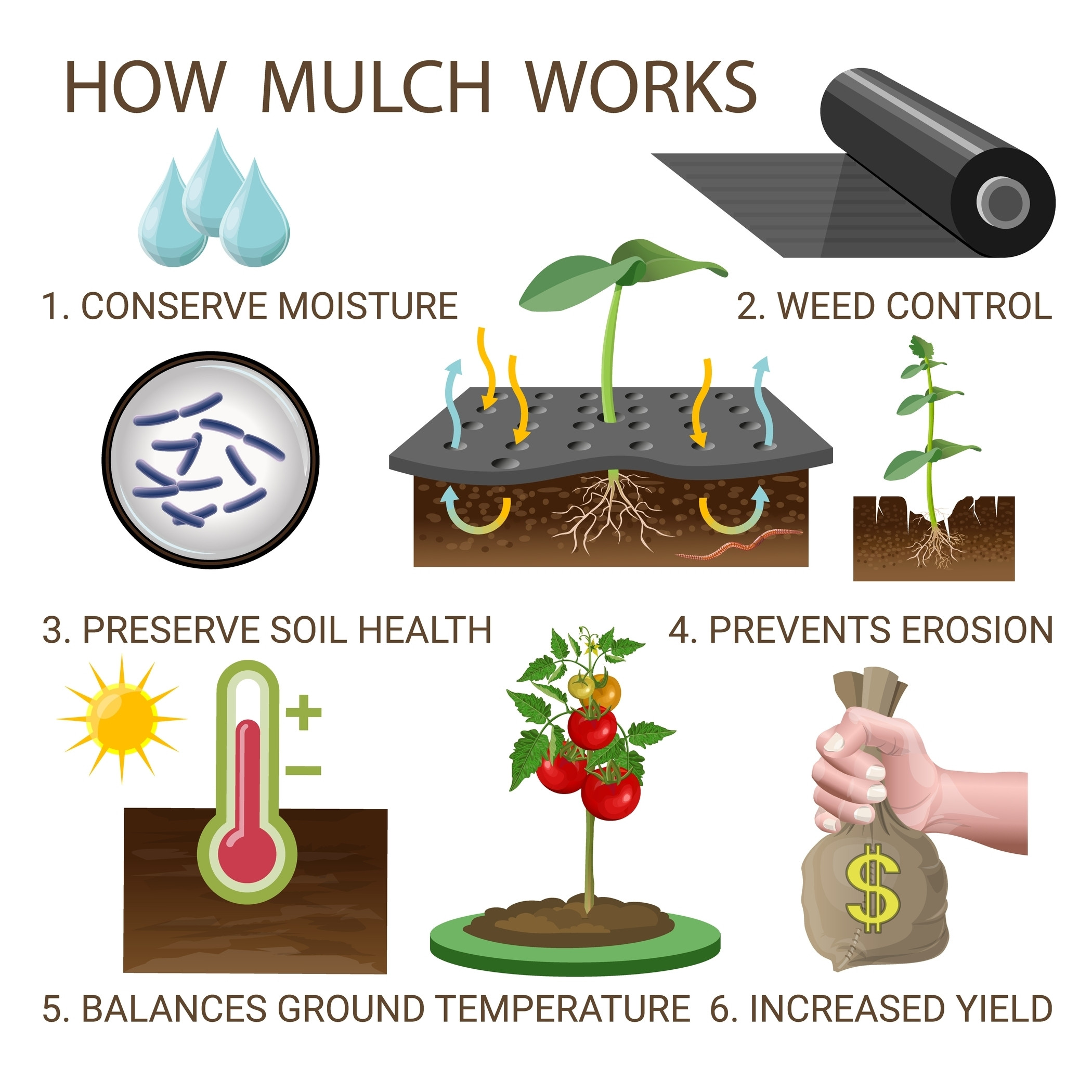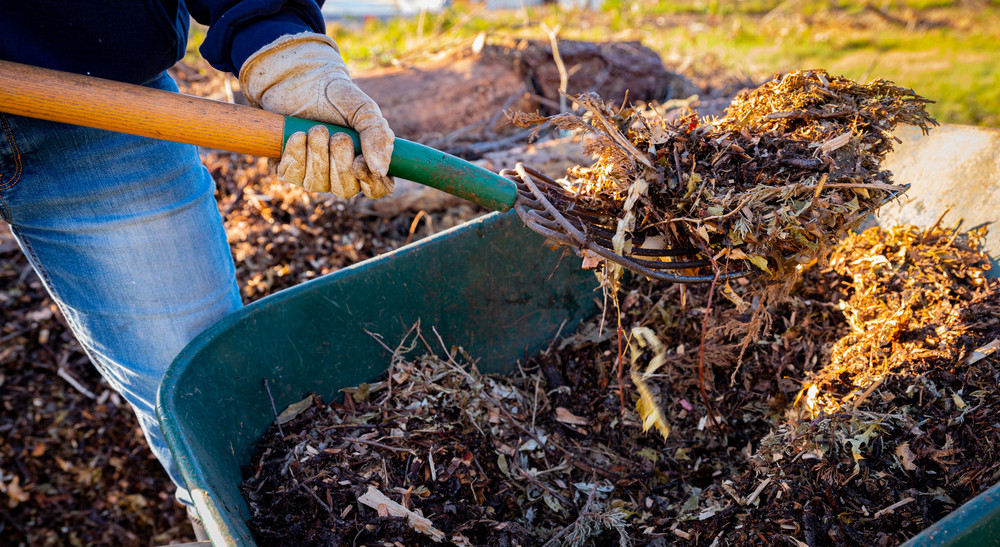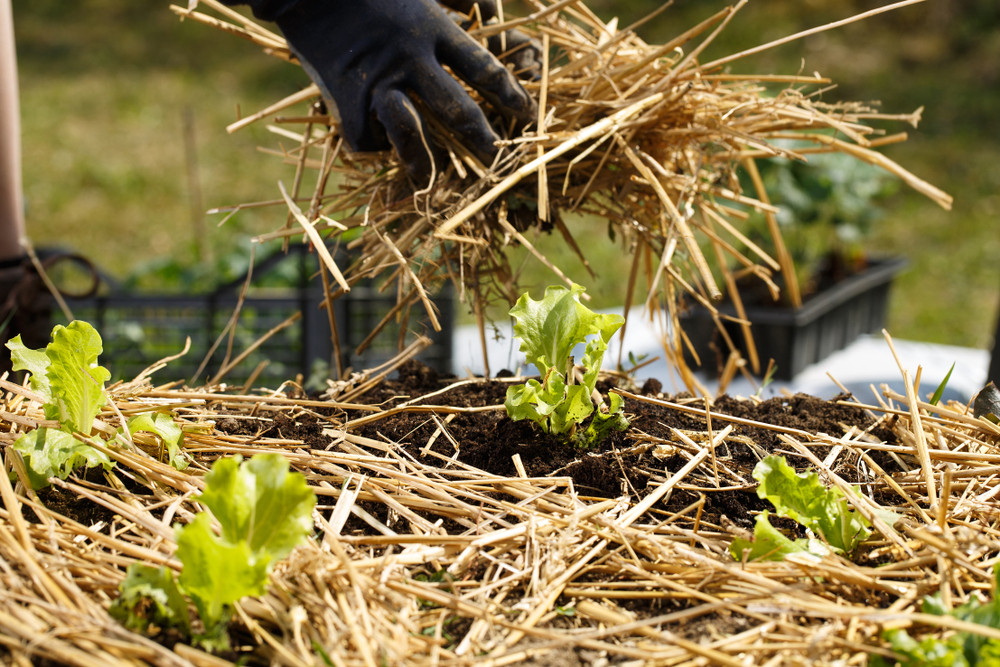The Importance of Mulching Throughout the Year

The Importance of Mulching Throughout the Year
Mulching is an essential gardening practice that can greatly benefit your garden year-round. Whether you are a novice garden planner or a seasoned pro, incorporating mulching, is a step towards healthier plants and more efficient gardening. In this article, we will look into the importance of mulching throughout the year, with a particular focus on the summer season.
Why Mulch?
Mulching offers a multitude of benefits for your garden. It helps retain soil moisture, suppress weeds, improve soil fertility, and regulate soil temperature. These advantages make it a crucial part of any garden planner. By acting as a protective layer, mulch prevents soil erosion and compaction, fostering a healthier root environment for plants. There are many different types of mulching including a hard plastic membrane method, wood or stone chippings, straw or grass cuttings, although organic mulches decompose over time, enriching the soil with essential nutrients.

Mulching in Different Seasons
-
Spring: Spring is a time of renewal and growth. Mulching in the spring helps retain moisture in the soil as plants begin their growing season. It also provides a head start in weed control, reducing competition for nutrients and water. A garden planner should note that applying mulch in the spring can create a more hospitable environment for beneficial organisms like earthworms. Mulch can act as a physical barrier, preventing pests like beetles, ants, and certain types of larvae from reaching the plant stems and roots. By incorporating a layer of mulch into your garden planner, you can reduce the likelihood of these pests damaging your plants.
-
Summer: The summer season is when mulching becomes particularly vital. High temperatures and increased sunlight can quickly dry out the soil, stressing plants and reducing their growth. By incorporating mulch into your summer garden planner, you can help your plants thrive despite the heat. Mulch acts as a natural insulator, keeping the soil cool and moist. This not only reduces the need for frequent watering but also ensures that your plants have a consistent supply of moisture, which is crucial during the hot summer months. Certain types of mulch, such as rough-textured wood chips or gravel, can deter slugs and snails. These pests have difficulty navigating through coarse materials, making it harder for them to reach your plants. Using mulch strategically in your garden planner can significantly reduce damage caused by these slimy invaders.
-
Fall: Fall is an excellent time to add mulch to your garden as it prepares for the colder months ahead. Mulching in the fall helps protect plants' roots from frost and temperature fluctuations. It also continues to suppress weeds and retain soil moisture. Your garden planner should include mulching as part of the fall cleanup routine, ensuring a healthier garden in the following spring. Mulch can help prevent the spread of soil-borne diseases by acting as a barrier between plant leaves and the soil. This is particularly important for preventing fungal infections that can thrive in moist, warm conditions. A well-planned mulching strategy in your garden planner can contribute to healthier plants with fewer disease issues.
-
Winter: While many gardens lie dormant in the winter, mulching still plays a critical role. It acts as a blanket, insulating plant roots and soil from freezing temperatures. This protection is particularly important for perennial plants and those with shallow root systems. Including winter mulching in your garden planner can prevent soil erosion and maintain soil structure, setting the stage for robust growth in the spring.

Mulching Tips for the Summer Season
During the summer, it is essential to apply mulch correctly to maximize its benefits. Here are some tips to include in your garden planner:
-
Choose the Right Mulch: Organic mulches, such as straw, grass clippings, and wood chips, are excellent choices for summer mulching. They decompose over time, adding nutrients to the soil.
-
Apply Adequate Thickness: A layer of mulch around 2-4 inches thick is generally recommended. This depth helps retain moisture and suppress weeds effectively.
-
Maintain a Mulch-Free Zone Around Stems: Ensure that mulch is not piled directly against plant stems or tree trunks. This practice prevents rot and allows for proper air circulation.
-
Replenish Mulch as Needed: Over time, mulch can break down and become less effective. Regularly check your garden and add more mulch as necessary to maintain its benefits.

Conclusion
Mulching is a year-round practice that should be an integral part of any garden planner. By understanding the importance of mulching in different seasons and paying special attention to the summer months, you can ensure a healthier, more resilient garden. Mulch not only conserves water and suppresses weeds but also enhances soil fertility and protects plant roots. Mulch also acts as a barrier against pests, supports beneficial insects, and prevents the spread of diseases. As you plan your gardening activities throughout the year, remember to include mulching as a crucial component in your garden planner for a thriving, pest-free garden.






